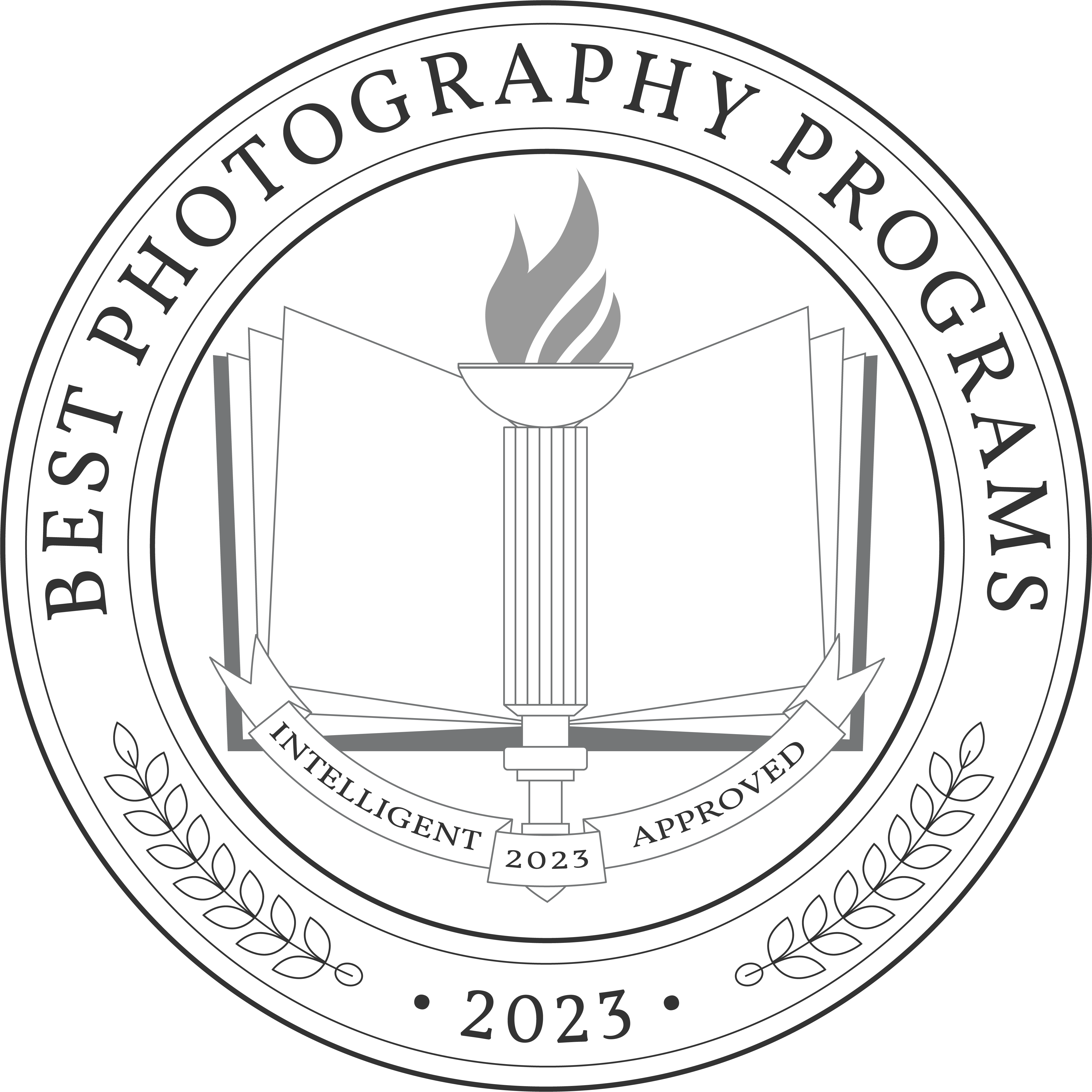Why This Matters
-
COMMERCIAL PHOTOGRAPHY IS A $1.8 BILLION INDUSTRY
As more companies look to tell their stories visually, the commercial photography business has grown steadily to become a nearly $2 billion dollar industry in the U.S.
-
EARN UP TO $40 PER HOUR
While the average hourly wage for photographers is $19.85, the top 10% earn more than $41.76 per hour.
-
18,900 NEW PHOTOGRAPHER JOBS PROJECTED OVER THE NEXT DECADE
The industry is expected to grow 17% from 2020 to 2030, which is much faster than the projected growth rate for all occupations.
Our Research
This list focuses on the top college-level programs for photographers. It includes associate’s degree programs as well as BFAs and master’s degree programs. We looked for educational opportunities that combined the best training in the technical aspects of using photographic equipment and software combined with courses in creative expression, marketing and communication, video production, and even web design.
Photography programs are accredited by the regional agency that is active in the school’s local area. This includes organizations such as the Higher Learning Commission, Middle States Commission on Higher Education, and Northwest Commission on Colleges and Universities. Periodic accreditation ensures students that they are getting cutting edge curriculum taught by professors with the terminal degree in their field as well as pertinent real-world knowledge.
We evaluated each program on the basis of flexibility, faculty, course strength, cost, and reputation. Then we calculated the Intelligent Score for each program on a scale from 0 to 100. For a more extensive explanation, check out Our Ranking Methodology.
- 63 hours to write this article
- 180 universities and colleges we assessed
- 246 education programs we compared
The Top 50 Photography Degree Programs

Discover More Options
What You Should Know About This Degree
Armed with a degree or certificate in photography, there are many avenues of employment you can explore. According to the Bureau of Labor Statistics, the demand for self-employed photographers will grow in the next decade. The need for event and portrait photographers remains steady.
Although the field of photojournalism has taken a hit as amateur photographers play a greater role, there are still many jobs in the media world for those who wish to work for journals, newspapers, magazines, and more. Drone photography has increasing applications for agriculture, real estate, and government use.
A photography diploma may also open the door to work as an art director, marketing specialist, or graphic designer. The creative skills learned in a photography program can translate to other arts-based occupations, from architect to fashion designer.
Photographic certifications are available from professional organizations. The non-profit Professional Photographers of America, for example, offers Certified Professional Photographer (CPP) and Certified Drone Photographer designations for interested professionals.
What’s Next?
Here are some questions to ask when researching photography programs:
- Am I eligible for this program? Eligibility requirements vary from program to program, and depend on the level of education — associate’s, bachelor’s, or master’s degree. In addition to filling out an application, most programs will require a portfolio of work. Some of the advanced programs may be geared toward professionals already working in the field, but even at the most basic level, admissions personnel will want to see what a student is capable of before offering a place in the incoming class.
- How long does it take to complete this online degree? This, too, varies from program to program. If you are attending full time, an associate’s program will take approximately two years, while a bachelor’s degree may take up to four years. Master’s level programs range from one to two years for full-time study. If you take classes part time, of course, it will take longer.
When you are researching programs, note the focus of the material covered. If you are interested in photojournalism, for example, you may want a different mix of classes than someone who wishes to become an art photographer. An admissions counselor can help you determine if a program is a good fit for you.
A counselor can also help you hone in on potential financial aid offered by an institution. You may be eligible for scholarships, grants, or loans from your employer or professional organizations to which you belong.